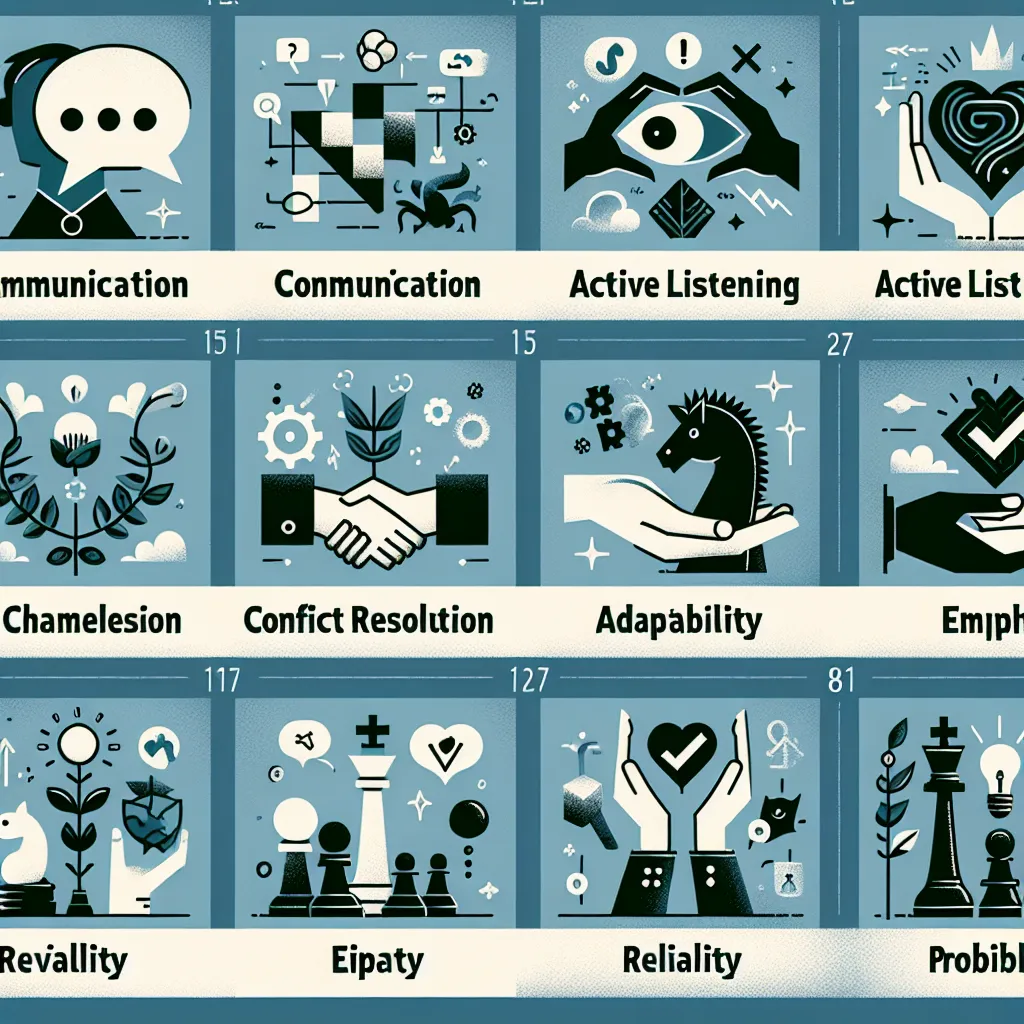Teamwork is a crucial skill that employers value highly in today’s collaborative work environments. When you’re in a job interview, being able to effectively communicate your teamwork experiences and skills can significantly boost your chances of landing the position. In this comprehensive guide, we’ll explore How To Talk About Teamwork In An Interview, providing you with valuable insights, strategies, and examples to help you showcase your collaborative abilities.
Understanding the Importance of Teamwork in the Workplace
Before diving into how to discuss teamwork in an interview, it’s essential to understand why employers place such a high value on this skill. Teamwork is the foundation of successful organizations, fostering innovation, productivity, and a positive work culture.
The Benefits of Effective Teamwork
- Enhanced problem-solving: Diverse perspectives lead to more creative solutions.
- Increased efficiency: Tasks are completed faster when workload is shared.
- Improved communication: Regular collaboration strengthens interpersonal skills.
- Higher employee satisfaction: Working together creates a sense of belonging.
- Better conflict resolution: Team members learn to navigate differences constructively.
Understanding these benefits will help you articulate the value you bring to a team during your interview.
 Benefits of Teamwork
Benefits of Teamwork
Preparing to Discuss Teamwork in Your Interview
To effectively talk about teamwork in an interview, you need to prepare beforehand. This preparation involves reflecting on your past experiences and identifying specific examples that showcase your teamwork skills.
Reflecting on Your Teamwork Experiences
Take some time to think about your past team experiences, both in professional and personal settings. Consider the following questions:
- What roles have you played in teams?
- What challenges did you face, and how did you overcome them?
- What were your most significant team achievements?
- How have you contributed to team success?
- What have you learned from working in teams?
By answering these questions, you’ll have a wealth of material to draw from during your interview.
Strategies for Discussing Teamwork in an Interview
Now that you’ve reflected on your experiences, let’s explore strategies for effectively communicating your teamwork skills during the interview.
Use the STAR Method
The STAR method (Situation, Task, Action, Result) is an excellent framework for structuring your responses to teamwork-related questions. Here’s how to apply it:
- Situation: Describe the context of your teamwork experience.
- Task: Explain what you were trying to achieve as a team.
- Action: Detail the specific actions you took within the team.
- Result: Share the outcomes of your teamwork and what you learned.
Example:
“In my previous role as a marketing coordinator, our team was tasked with launching a new product line (Situation). We needed to create a comprehensive marketing strategy within a tight deadline (Task). I took the initiative to organize daily stand-up meetings and created a shared digital workspace to improve our collaboration (Action). As a result, we launched the product line two weeks ahead of schedule, and it exceeded sales projections by 25% in the first quarter (Result).”
Highlight Specific Teamwork Skills
When discussing your experiences, focus on specific teamwork skills that are valuable in the workplace:
- Communication
- Active listening
- Conflict resolution
- Adaptability
- Leadership
- Empathy
- Reliability
- Problem-solving
Incorporate these skills into your responses to demonstrate your well-rounded teamwork abilities.
 Essential Teamwork Skills
Essential Teamwork Skills
Provide Concrete Examples
Instead of making general statements about being a “team player,” provide specific examples that illustrate your teamwork skills in action. For instance:
“In my role as a software developer, I noticed that our team was struggling with code integration. I proposed and implemented a new version control system, which reduced merge conflicts by 60% and improved our overall efficiency.”
Discuss Remote Collaboration
With the rise of remote work, discussing your ability to collaborate virtually is increasingly important. Share experiences of using digital tools, managing time zones, and maintaining team cohesion in a remote setting.
Common Teamwork Interview Questions and How to Answer Them
Here are some typical teamwork-related questions you might encounter in an interview, along with strategies for answering them effectively:
-
“Can you describe a successful team project you’ve been involved in?”
- Use the STAR method to structure your response.
- Focus on your specific contributions and the project’s overall success.
-
“How do you handle conflicts within a team?”
- Emphasize your communication and problem-solving skills.
- Provide an example of a conflict you’ve successfully resolved.
-
“What role do you usually take in a team setting?”
- Discuss your adaptability in taking on different roles as needed.
- Highlight your strengths while showing willingness to step out of your comfort zone.
-
“How do you motivate team members?”
- Talk about your leadership and interpersonal skills.
- Share an example of how you’ve inspired or supported colleagues.
-
“Describe a time when you had to work with a difficult team member.”
- Focus on your conflict resolution and empathy skills.
- Explain how you turned a challenging situation into a positive outcome.
Avoiding Common Mistakes When Discussing Teamwork
When talking about teamwork in an interview, be sure to avoid these common pitfalls:
-
Overemphasizing individual contributions: While it’s important to highlight your role, remember to give credit to the team as well.
-
Speaking negatively about past team members: Always maintain a professional and positive tone, even when discussing challenges.
-
Being vague: Provide specific, quantifiable results whenever possible to demonstrate the impact of your teamwork.
-
Ignoring the importance of diversity: Acknowledge the value of diverse perspectives in team settings.
-
Failing to show adaptability: Emphasize your ability to work with different personalities and in various team structures.
Follow-Up Questions and Suggested Responses
Here are some additional teamwork-related questions you might encounter, along with tips for answering:
-
“How do you ensure effective communication within a team?”
Suggested response: “I believe in setting clear expectations and using a mix of communication tools. For example, I’ve implemented regular check-ins, used project management software for task tracking, and encouraged open dialogue to ensure everyone stays informed and aligned.” -
“Can you describe a time when you had to lead a team through a significant change?”
Suggested response: “In my previous role, our company underwent a major software transition. I led my team by creating a detailed implementation plan, providing training sessions, and offering one-on-one support to those who needed it. This approach helped us complete the transition smoothly and ahead of schedule.” -
“How do you handle a situation where team members are not pulling their weight?”
Suggested response: “I believe in addressing such issues promptly and professionally. I would first have a private conversation with the team member to understand any challenges they might be facing. If necessary, I would work with them to create an improvement plan and follow up regularly to ensure progress.” -
“What strategies do you use to build trust within a team?”
Suggested response: “Building trust is crucial for team success. I focus on being reliable, transparent in my communication, and following through on commitments. I also encourage team-building activities and create opportunities for team members to collaborate on smaller projects to strengthen relationships.” -
“How do you ensure that all team members’ ideas are heard and considered?”
Suggested response: “I’m a strong believer in inclusive decision-making. In meetings, I make sure to create space for everyone to contribute, often using techniques like round-robin discussions or anonymous idea submission to ensure all voices are heard. I also follow up with quieter team members individually to gather their thoughts.”
Conclusion
Effectively discussing teamwork in an interview is a skill that can set you apart from other candidates. By preparing specific examples, using the STAR method, and highlighting key teamwork skills, you can demonstrate your value as a collaborative team member. Remember to focus on concrete experiences, emphasize your adaptability, and show your understanding of the importance of teamwork in today’s workplace.
As you prepare for your interview, practice articulating your teamwork experiences clearly and concisely. Consider role-playing with a friend or mentor to gain confidence in your responses. With thorough preparation and a genuine appreciation for collaborative work, you’ll be well-equipped to impress your interviewer and showcase your teamwork abilities.
For more tips on acing your job interview, check out our guide on how to prepare for an English interview. And if you’re looking to highlight your innovative thinking, don’t miss our article on how to talk about your experience with innovation.




